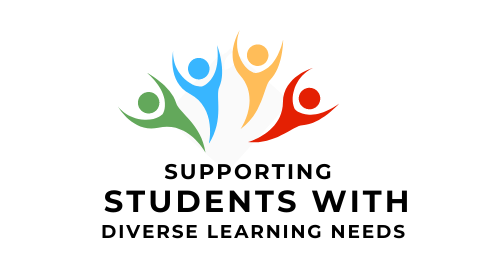- Recognize that college attendance is demanding for many students. College is a demanding time in life and all students will experience stress at some point. Students with disabilities often face additional stressors as they navigate a college environment which may not be designed to accommodate their individual needs.
- Stress management is important to promote health. Stress management can be an important preventative measure for students with health and mental health problems to help maintain their overall health at college.
- Many students may be hesitant to disclose their challenges. Many students with mental health disabilities do not disclose their disability, request accommodations or access college counselling services. They may be concerned about the stigma attached to mental health problems and be unwilling to ask for help. Building trust and encouraging open communication can be an important first step to supporting these students.
- Programs and initiatives that support healthy minds can make a big difference for all students. Building supports for stress management into colleges and programs can help to create an environment where all students, not just students with disabilities, can flourish.
- Create a socially inclusive classroom environment by encouraging peer support, valuing and welcoming diversity, and being responsive to students’ needs.
- Provide flexibility with oral presentations. For example, allow a student to perform in front of a small group, or the instructor, rather than a full class.
- Avoid calling on students randomly in class. Choose students who raise their hand or give students advanced notice that they may be required to give input on a specific topic.
- Provide flexibility with deadlines. For students who experience extreme stress, just knowing that they have the option of a short extension can significantly reduce their anxiety and make it possible for them to complete their course.
- Provide flexibility with attendance. Students with mental health disabilities or other disabilities may experience periods when their symptoms flare up and they are unable to attend class. In these cases, some flexibility in meeting attendance requirements can help them to reduce stress and maintain their health.
- Provide lecture notes online. Notes are available to students who miss classes due to medical appointments or a period of extreme symptoms.
- Provide a detailed course outline which outlines the learning outcomes, expectations, topics, reading list, and evaluation procedures.
- Consult with the student. Arrange to meet with the student in a confidential setting to discuss their learning needs and encourage open communication.
- Contact the Disability Services Office. If instructors have any concerns about accommodating a student, contact the disability services office for advice and assistance.
- Quiet place to write exams.
- Extra time for exams.
- Extended program completion time.
- Extended time for course work.
- Entry/exit from classroom as needed.
- Exit/re-entry for episodic illness.
- Part-time programming.
- Mental Health Conditions Students with mental health disorders may have high levels of stress and anxiety. Mental health problems include a wide variety of disorders including anxiety/panic disorders, bipolar disorder, depression, post-traumatic stress disorder, schizophrenia and substance use disorders.
- Learning Disabilities and Autism Spectrum Disorder Students with invisible disabilities, such as learning disabilities or autism spectrum disorder, may experience stress and anxiety in a college setting as they work to meet the social and academic challenges of college life.
- Physical Disabilities Students with physical disabilities and chronic health problems may experience stress as a result of fatigue or the pressures of managing medical appointments and college work.
Case Study
Jackie, a strong student, walked out in the middle of her midterm exam. When her instructor talked to her about the incident, she explained that she had studied hard for the exam. However, Jackie had been so stressed the night before that she had not been able to sleep. When she arrived at the exam, she felt that she was about to have a panic attack. Her panic symptoms increased progressively as she tried to work through the exam. She explained that finally she felt that she had to leave the exam room. Jackie shared with her instructor that she had been diagnosed with an anxiety disorder, but explained that she didn’t want anyone else in the department to know.
The instructor suggested that Jackie register with Disability Services. He explained that any information about her disability would be kept confidential and would not appear on her student transcripts. He also gave her information about college counselling services.
Jackie found the counselling very helpful. She decided to take a reduced course load to decrease her stress and received accommodations, including taking her exams in a separate setting, to reduce her fear of having a panic attack in a classroom setting.
Using supporting documentation from her doctor and the counsellor, Jackie was able to negotiate extensions for completing the schoolwork she had missed during the episode.
Videos
Katy’s experience with managing stress with a mental health condition:

